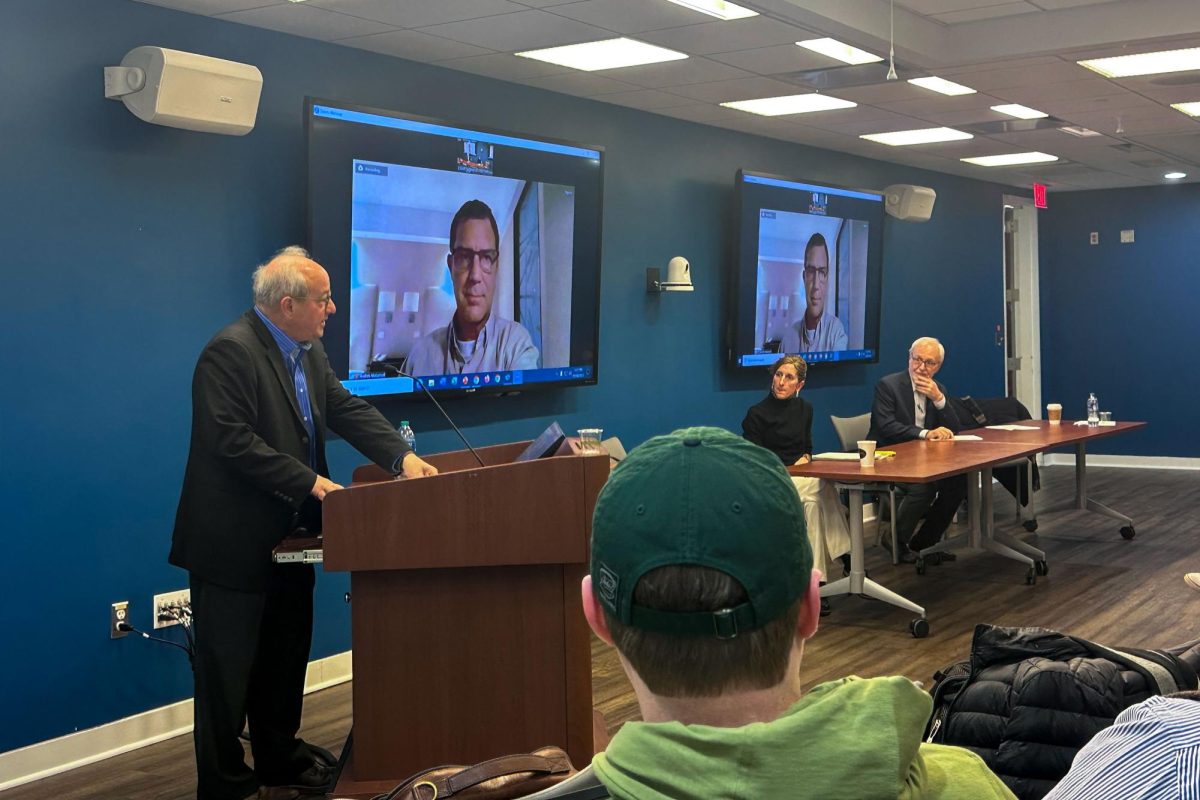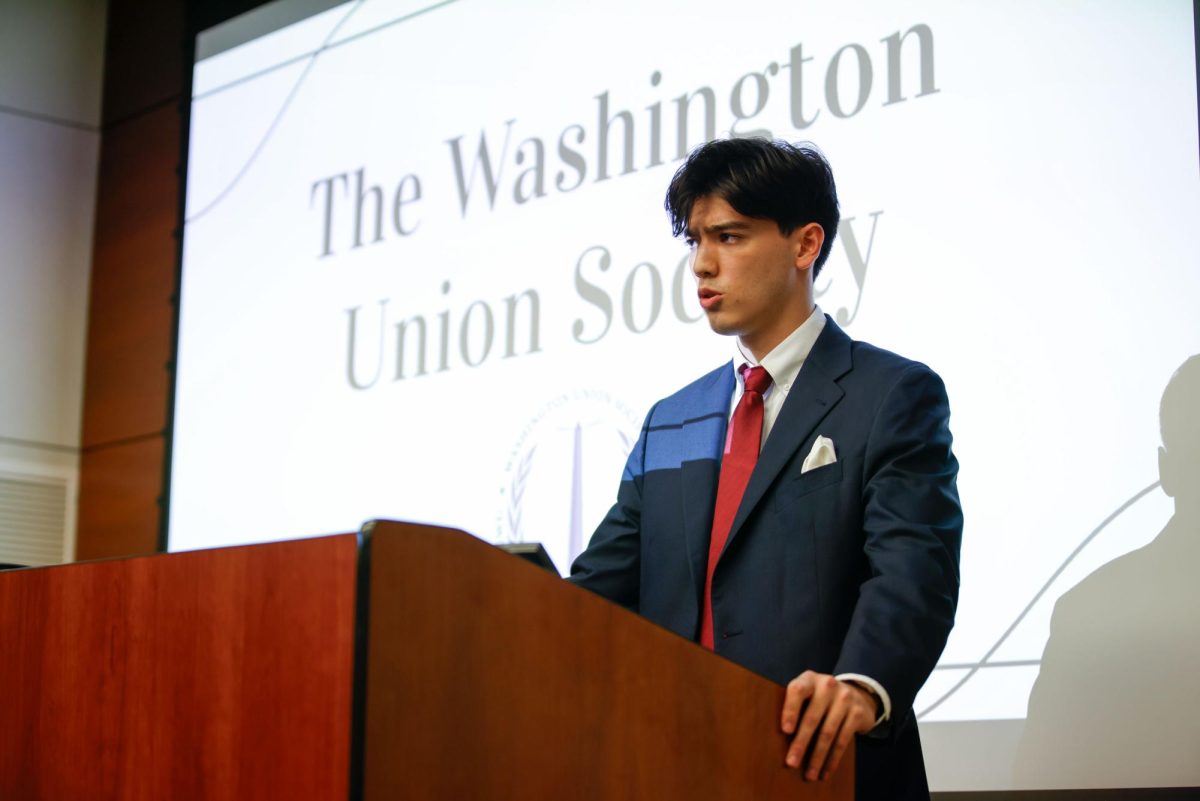Experts in Latin American politics discussed the effects of Argentina’s recent presidential election on the future of the country’s government at the Elliott School of International Affairs on Thursday.
University of Lisbon senior research fellow Andrés Malamud, American University professor of political science Agustina Giraudy and GW professor of international affairs Michael Shifter discussed Argentinian President-elect Javier Milei’s campaign promises and how he won the country’s presidential election last month. The panel was hosted by LATAM@GW and moderated by GW professor of international affairs Diego Abente-Brun.
Argentinians elected the far-right libertarian with 56 percent of the vote Nov. 19 over the incumbent Minister of the Economy Sergio Massa. Milei — an economist and former television personality with little political experience — represents a break from left-wing Justicialist Party presidents, who have assumed the role for 16 of the last 20 years.
“This is the first time an outsider in Argentina has won an election,” Malamud said. “Never, never before has an outsider won an election.”
Malamud said Milei’s victory was possible because of his charisma and campaign that appealed to an “angry” electorate wanting change after many years of economic mismanagement. He said Milei — whose party has seven out of 72 seats in the Senate of Argentina’s National Congress and 38 out of 257 in the lower Chamber of Deputies — doesn’t have enough seats to protect himself from an impeachment vote, let alone enough to pass his sweeping economic reforms like closing the Central Bank of Argentina and replacing Argentina’s national currency with the U.S. dollar.
“It’s not just the minority, it’s not that he lacks quality, it’s not that he’s not going to be able to pass his legislative agenda,” Malamud said. “He doesn’t even have a legislative shield — he doesn’t take a third of the seats in either chamber and you need a third of the seats in either chamber to block an impeachment proceeding.”
Malamud said Milei will need to form coalitions with other parties to stay in power, which means he will likely not be able to keep all his campaign promises.
Malamud said it is “unthinkable” that Milei won the presidency after making controversial comments calling former British Prime Minister Margaret Thatcher — who led Britain during the 1982 Falklands War against Argentina — one of the “great leaders” in humanity’s history and calling Pope Francis — an Argentinian — a “filthy leftist.”
Giraudy presented her research on the demographics of Milei’s voters at the event, who were predominantly “extremely” conservative men from younger generations with “authoritarian tendencies.”
“The Milei voter does not believe that democracy is the best type of regime,” Giraudy said.
Giraudy said younger voters are unfamiliar with the military dictatorship that ruled Argentina from 1976 to 1983 and committed many human rights crimes and extrajudicial executions.
“Argentina has lots of economic problems, but in terms of democratic stability and the value for democracy, it is a country that we should praise,” Giraudy said. “This is changing, and this is changing quite dramatically. The younger generations don’t remember what happened in the 1970s.”
Shifter said Milei was acting “pragmatic” by walking back some of his “anarcho-capitalist” policies. He said Milei had promised to condemn and cut Argentinian trade and relations with communist countries but decided to support trade with China because they make up 10 percent of Argentinian exports.
Shifter said Milei has appointed many ministers from the administration of former President Mauricio Macri — a member of the center-right Republican Proposal party — to high-ranking posts like economy minister. Shifter said the appointment may signal a shift away from his more extreme ideas and may cost him popular support in the long run.
“He’s making a lot of interesting moves, which you would expect from somebody who is called ‘El Loco,’” Shifter said. “So, for a guy who knows nothing about politics and as an outsider, I think it’s something to watch closely.”











